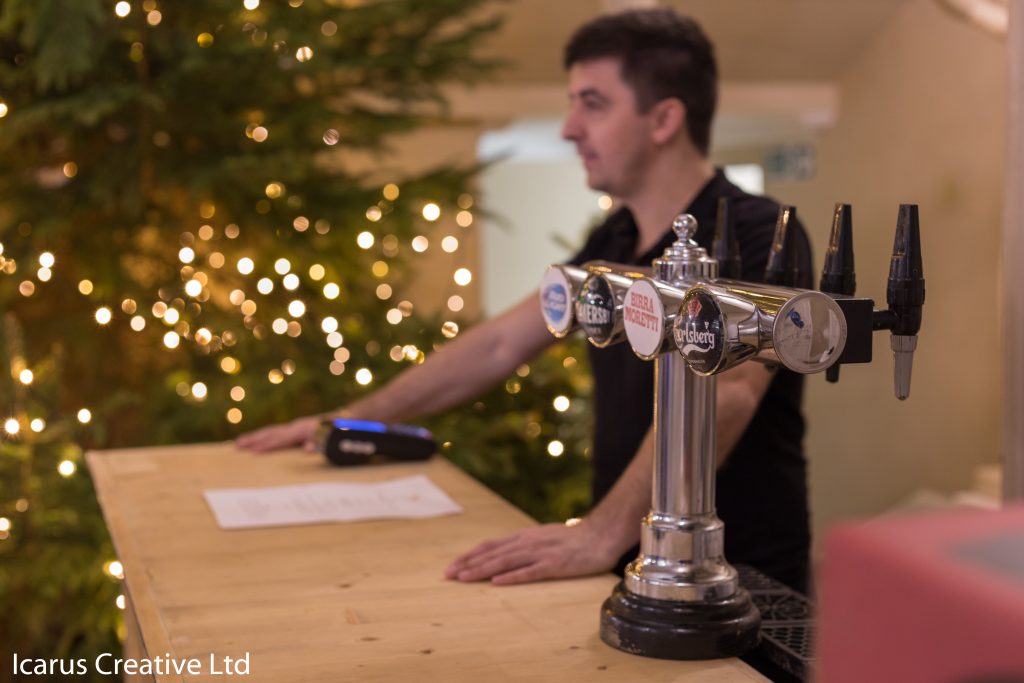The Ups & Downs of Running Outside Bars
Reflections of a Reluctant Pub Landlady
Introduction
Outside bars was an interesting, challenging diversification for me. When you are a small business owner, the ability to diversify can open new doors, create fresh opportunities, and protect your business from the unexpected. However, as I’ve learned through my own experiences, this journey is not without its challenges.
When we decided to diversify by purchasing a 22ft mobile bar, it was a bold move—one that came with its fair share of risks and uncertainties. But we knew that standing still wasn’t an option. Diversification, after all, is about stepping into new territory and being open to the potential that lies beyond our current horizons.
Outside Bars – Dipping our Toes in the Events Industry
Our decision to expand into the events industry was met with a mix of excitement and trepidation. The idea of catering to concerts and large-scale events was exhilarating, but we quickly realized that the path wouldn’t be smooth. The bumps along the way were plentiful and at times, quite daunting.
We were jubilant when we managed to secure our first major contract. We won the contract to supply a bar for a number of key events and were extremely excited. I remember doing a little ‘happy dance’ outside the offices when we left.
Early Challenges
One of the first challenges we faced was securing funding for the beer we needed. High street banks were less than supportive; they sneered at our proposal, leaving us in a tight spot. However, perseverance paid off when we managed to strike a deal with Greene King, obtaining our stock on a sale or return basis. It was a small victory that underscored the importance of creativity and resilience when traditional avenues fail you.
It was very difficult to predict how much beer we would need. We had never done a concert before, and it was definitely a finger in the air. As it happened we over-estimated, but it was better than running out.
Mixed Successes
As we rolled out our mobile bar to various events, the experiences varied greatly. Some concerts were incredibly lucrative. For instance, our UB40 concert was a roaring success. The weather was glorious, the atmosphere electric, and we sold thousands of pounds worth of drinks. But just as we were celebrating, disaster struck. On the way home, the mobile bar collapsed on the motorway, leaving us with no choice but to have it rescued and brought back home at great expense. The bar needed specialist repairs, which meant transporting it all the way to Anglesey. By the time we had covered all the repair costs, our hard-earned profits had evaporated.
Of course we didn’t just do large concerts. We did bars for weddings, in village halls, at Christmas markets, polo matches and beer festivals. These could be equally as challenging and we had to learn fast.
Lessons in Running Outside Bars
This experience was a harsh lesson in the unpredictability of outside bars. While some events, like the UB40 concert, brought in significant revenue, others were less fruitful. At the Landrover show, for example, the attendees were more interested in their vehicles than our bar. Despite all our efforts, the sales were disappointingly low. It became clear that while some events could be goldmines, others were, quite frankly, a waste of effort.
We quickly learned that the contract for an eclectic mix of shows and concerts had been lumped together by one Events Company for a reason—you had to take the good with the bad. This meant that success wasn’t about hitting a home run every time but rather about balancing out the highs and lows over the long term.
Another critical lesson was the art of negotiation. Pitch fees and commissions could be substantial, and we had to learn to negotiate hard. But sometimes, the event organisers held all the cards. We humorously dubbed it the “Bob School of Management,” after an organiser called Bob nonchalantly told us he could find another “mug” willing to pay the high fees. It was a stark reminder that while negotiation is essential, sometimes you have to accept the terms or walk away.
Weather was another factor that played a significant role in our success—or lack thereof. Outdoor events are inherently weather-dependent, and a rainy day could significantly impact foot traffic and sales. We learned that providing a marquee or seating under a gazebo could make a world of difference when the weather was less than ideal, and it was details like this you need to negotiate at the start.
We learnt for smaller events to charge a good deposit, and put a minimum spend on the bar, which if not reached would mean the deposit was non-refundable. Event organisers were prone to be over-optimistic on footfall or potential spend!
Ultimately, running an outside bar is a gamble. There are moments when it pays off handsomely, but it requires careful cost control and the ability to take the long view. You have to be prepared for the unexpected, whether it’s a fantastic day of sales or an unforeseen disaster on the motorway.
Learning through Diversification
Diversifying our business by purchasing that 22ft bar and moving into outside bars and catering brought us both incredible opportunities and significant challenges. It taught us resilience, adaptability, and the importance of meticulous planning. But most importantly, it reinforced the idea that success in diversification isn’t about avoiding risks—it’s about managing them and learning from every bump along the way.
If you’re considering outside bars or catering, I say go for it—but do so with your eyes wide open. Expect challenges, embrace them, and know that they are an integral part of the journey. Diversification might not be the easiest path, but it’s one that can lead to incredible growth, both personally and professionally.




